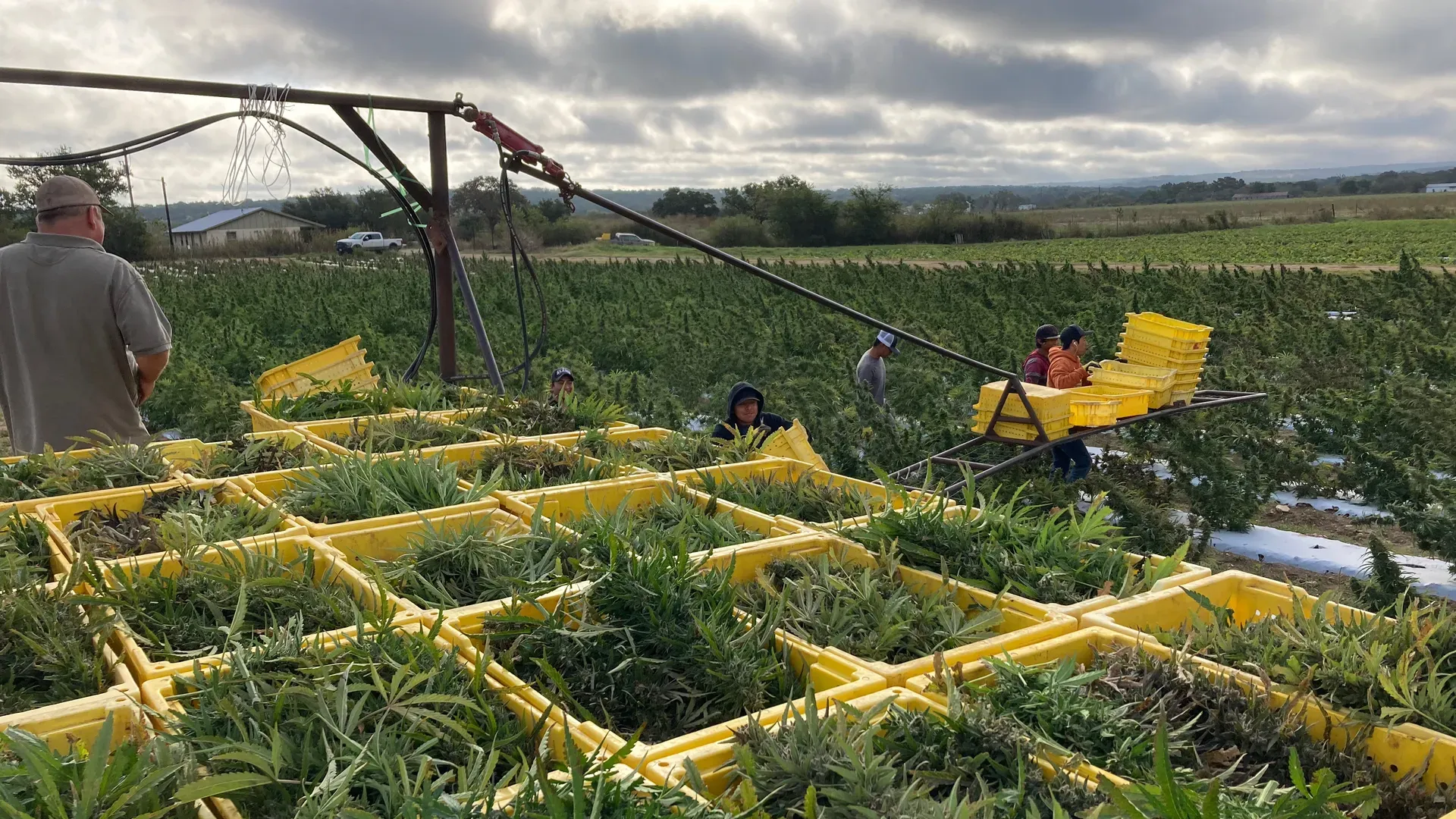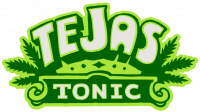Axios Austin

Hemp is harvested from Tejas Tonic’s Dripping Springs ranch. Photo: Courtesy of Tejas Tonic
Ban could end hemp business boom
Aaron Owens began growing hemp at his Dripping Springs ranch five years ago, after the Texas Legislature legalized its production.
He now farms 5–10 acres of hemp each year and runs his own business, Tejas Tonic, selling THC-infused seltzer and gummies.
Why it matters: The state’s 2019 agricultural hemp law opened the door for hemp farming and the sale of products containing less than 0.3% of THC. Business took off for farmers like Owens and thousands of small business owners.
Driving the news: But concerned about an unregulated market and THC products reaching children, some Republican lawmakers are now seeking to shut down the industry.
Zoom in: Hundreds of hemp advocates, growers and business owners testified before a House committee this week, warning that the effort to restrict THC would make it difficult to distribute their products and remain afloat.
- The Senate has already passed a bill that would ban all forms of THC, a priority of Lt. Gov. Dan Patrick.
- The House’s proposal, which was left pending in committee Monday, would impose age restrictions, ban synthetic cannabinoids and impose strict licensing requirements for the hemp industry. The measure would allow an exception for THC-infused drinks to be sold in liquor stores, but ban edibles and smokable products.
What they’re saying: Owens agrees that synthetic THC products “have to go,” and that products should be required to have child-safe packaging and be restricted to those 21 and older.
- The House proposal would halt the sale of his gummies and bring his THC-infused beverages under the regulatory authority of the Texas Alcoholic Beverage Commission, which Owens said would end his direct-to-consumer sales.
- “It would dramatically impact my business,” Owens said. “Now my consumers would have to go to a place of alcohol to buy my non-alcoholic product? I don’t really care for that. What if you’re a recovering alcoholic?”
- But if the Senate’s outright ban passes, “we’re all just out of business,” Owens added.
By the numbers: A recent analysis from Whitney Economics and the Texas Hemp Business Council found that the state’s hemp industry generates $5.5 billion in annual sales, with an estimated tax revenue of $268 million.
- Total employment in the state’s hemp industry grew to 53,300 jobs this year, up from around 50,100 in 2023, the report found.
- “Texas’ hemp industry is not only growing but also providing thousands of jobs and billions in economic impact,” Cynthia Cabrera, chief strategy officer at Austin-based Hometown Hero and president of the business council, said in a statement, adding that proposed regulations “will devastate small businesses, eliminate tens of thousands of jobs and strip billions from the Texas economy.”
What’s next: As lawmakers consider how best to regulate the hemp industry, Owens and Jester King Brewery announced a new partnership Thursday to roll out hemp cocktails at the Hill Country brewery.
- The nonalcoholic hemp beverages, which contain 5mg each of CBD and THC, will be available in three flavors and debut in cans and on draft at the brewery during its April 19 Green Acres Hop Fest.
- Four-packs of the cans will also be available in select retail stores in Austin, San Antonio, Dallas-Fort Worth and Houston.
The bottom line: Owens said he’s prepared to adjust his business if lawmakers pass an outright ban, but it wouldn’t be easy.
- “We have the ability to pivot and pull the essential oils from the plants and put them in there without the THC and all those things,” he said. “But it would be a worst-case scenario for me to be forced into that position.”
